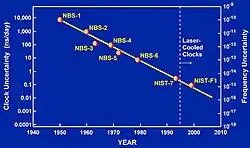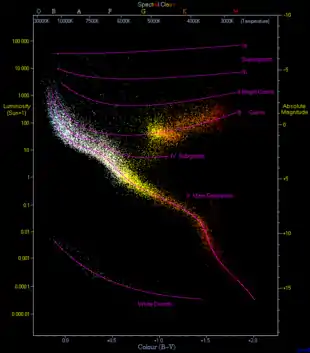|
The Astronomy Portal
Introduction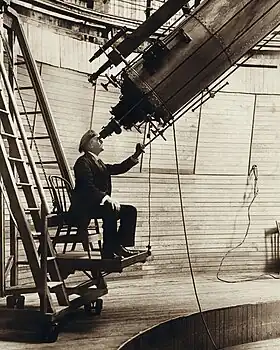 Percival Lowell observing Venus from the Lowell Observatory telescope in 1914 Astronomy is a natural science that studies celestial objects and the phenomena that occur in the cosmos. It uses mathematics, physics, and chemistry in order to explain their origin and their overall evolution. Objects of interest include planets, moons, stars, nebulae, galaxies, meteoroids, asteroids, and comets. Relevant phenomena include supernova explosions, gamma ray bursts, quasars, blazars, pulsars, and cosmic microwave background radiation. More generally, astronomy studies everything that originates beyond Earth's atmosphere. Cosmology is a branch of astronomy that studies the universe as a whole. Astronomy is one of the oldest natural sciences. The early civilizations in recorded history made methodical observations of the night sky. These include the Egyptians, Babylonians, Greeks, Indians, Chinese, Maya, and many ancient indigenous peoples of the Americas. In the past, astronomy included disciplines as diverse as astrometry, celestial navigation, observational astronomy, and the making of calendars. Professional astronomy is split into observational and theoretical branches. Observational astronomy is focused on acquiring data from observations of astronomical objects. This data is then analyzed using basic principles of physics. Theoretical astronomy is oriented toward the development of computer or analytical models to describe astronomical objects and phenomena. These two fields complement each other. Theoretical astronomy seeks to explain observational results and observations are used to confirm theoretical results. Astronomy is one of the few sciences in which amateurs play an active role. This is especially true for the discovery and observation of transient events. Amateur astronomers have helped with many important discoveries, such as finding new comets. (Full article...) General images -The following are images from various astronomy-related articles on Wikipedia.
|
 |
|
| WikiProject Astronomy | WikiProject Solar System |
|---|---|
| WikiProject Cosmology | WikiProject Spaceflight |
Selected image -
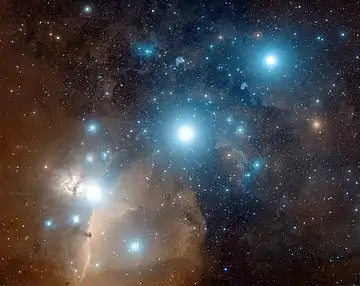
Orion's Belt or The Belt of Orion is an asterism in the constellation Orion. It consists of the three bright stars Alnitak, Alnilam, and Mintaka. The color picture was composited from photographic plates taken using the Samuel Oschin telescope at Palomar Observatory between 1987 and 1991.
Astronomy News
- 24 November 2023 –
- Astronomers at the Telescope Array Project in Utah, United States, observe the second largest cosmic ray ever detected, the so-called Amaterasu particle, with an energy of 244 EeV. (Cosmos Magazine)
January anniversaries
- 1 January 1925 – Astronomer Edwin Hubble formally presents his discovery of galaxies outside the Milky Way at a meeting of the American Astronomical Society
- 1 January 1952 – The Kyiv Planetarium opens in Kyiv, Ukraine
- 3 January 1888 – The 91-centimeter refracting telescope at Lick Observatory, the world's largest telescope from 1888 to 1897, sees its first light
- 3 January 1999 – The Mars Polar Lander is launched by NASA to study the soil and climate of Planum Australe, a region near the south pole on Mars
- 4 January 2004 – The Mars rover Spirit lands, three weeks ahead of twin rover Opportunity, and begins exploring the Red Planet
- 14 January 2005 – The probe Huygens lands on Titan, a moon of Saturn, in the first successful landing in the outer Solar System
- 26 January 1949 – Hale telescope, which introduced several innovations to telescope construction and was the world's largest telescope for nearly 30 years, has its first light
Space-related Portals
Astronomical events
All times UT unless otherwise specified.
| 1 January, 15:28 | Moon at apogee |
| 2 January, 23:59 | Earth at perihelion |
| 4 January, 09:15 | Quadrantids peak |
| 11 January, 11:57 | New moon |
| 12 January, 13:59 | Mercury at greatest western elongation |
| 13 January, 10:35 | Moon at perigee |
| 15 January, 20:25 | Moon occults Neptune |
| 25 January, 17:54 | Full moon |
| 29 January, 08:14 | Moon at apogee |
Topics
Subcategories
Things you can do
|
Here are some Open Tasks :
Astronomy featured article candidates:
Astronomy articles for which peer review has been requested:
|
Wikibooks
These books may be in various stages of development. See also the related Science and Mathematics bookshelves.
- Astronomy
- GAT: A Glossary of Astronomical Terms
- Introduction to Astrophysics
- General relativity
- Observing the Sky from 30°S
- Observing the Sky from 40°N
Wikijunior
Associated Wikimedia
The following Wikimedia Foundation sister projects provide more on this subject:
-
 Commons
Commons
Free media repository -
 Wikibooks
Wikibooks
Free textbooks and manuals -
 Wikidata
Wikidata
Free knowledge base -
 Wikinews
Wikinews
Free-content news -
 Wikiquote
Wikiquote
Collection of quotations -
 Wikisource
Wikisource
Free-content library -
Wikiversity
Free learning tools -
 Wiktionary
Wiktionary
Dictionary and thesaurus
-
 List of all portals
List of all portals -

-

-

-

-

-

-

-

-

-
 Random portal
Random portal -
 WikiProject Portals
WikiProject Portals
Shortcuts to this page: Astronomy portal • P:ASTRO
.jpg.webp)
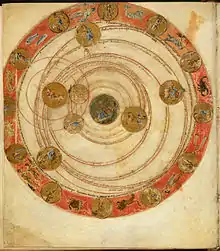



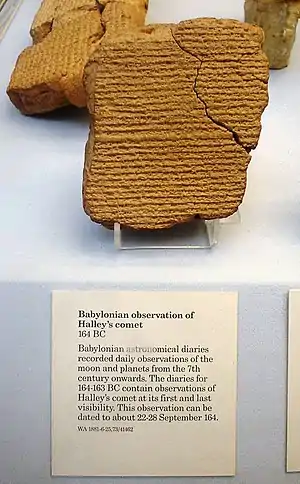
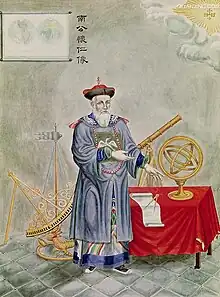


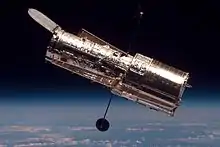
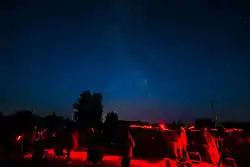

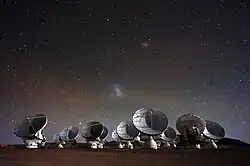
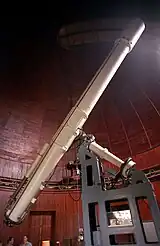


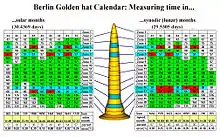
.jpg.webp)


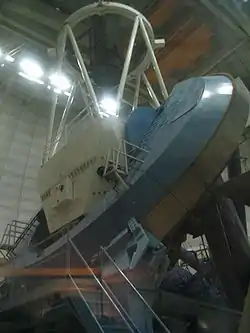
.jpg.webp)




.jpg.webp)




